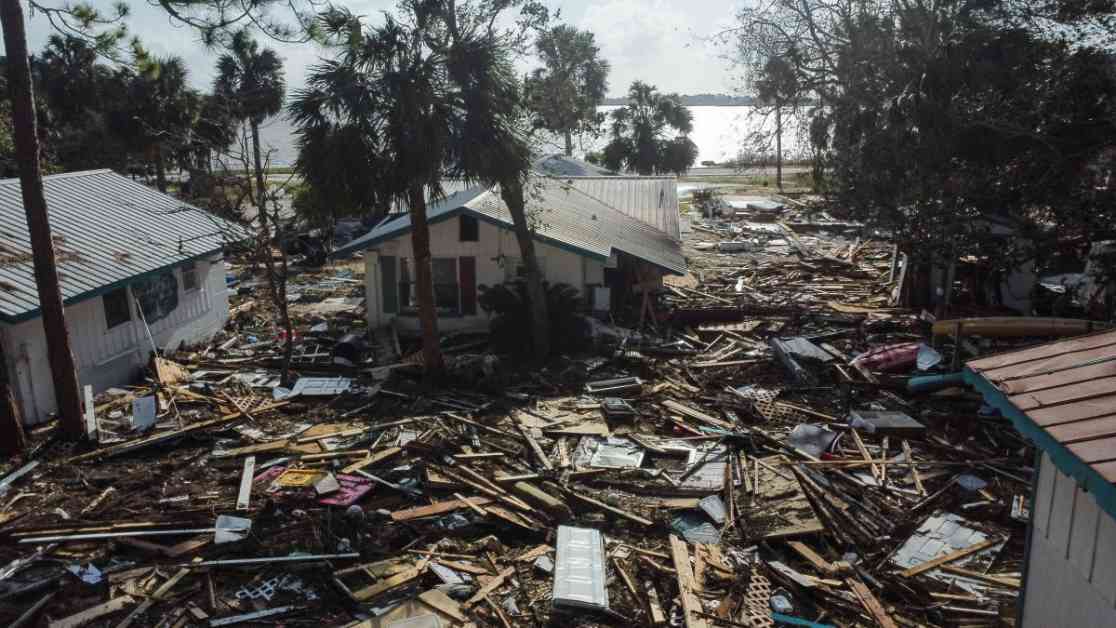Massive rains from Hurricane Helene left a devastating impact on the U.S. Southeast, resulting in the deaths of at least 58 people and leaving millions without power. The storm, which blew ashore in Florida as a Category 4 hurricane with wind speeds of up to 140 mph, caused widespread destruction as it moved through Georgia, the Carolinas, and Tennessee.
The aftermath of the storm left many people stranded, homeless, and in need of rescue. Janalea England, a resident of Steinhatchee, Florida, described the situation as unprecedented, with many of her friends and neighbors unable to get insurance on their homes. The storm’s impact was particularly severe in rural areas, with Western North Carolina experiencing landslides and flooding that led to road closures.
The rescue efforts were challenging, with dramatic water rescues taking place in rural areas of Tennessee and North Carolina. Emergency responders faced obstacles due to downed cell towers, making it difficult to contact next of kin. The storm also caused catastrophic flooding in North Carolina, where search and rescue teams from multiple states were deployed to assist in the aftermath.
Evacuations were carried out before the storm hit, but some residents were forced to wait until the last minute and had to be rescued from flooded homes. The storm overtopped dams and caused lakes to flood, leading to dangerous situations for residents near water bodies. The economic losses from Hurricane Helene are estimated to be between $95 billion and $110 billion, highlighting the devastating impact of the storm.
President Joe Biden was briefed on the situation and directed FEMA to provide support, including deploying additional search and rescue teams to North Carolina. The storm’s intensity and rapid development have been attributed to climate change, which has created conditions for storms like Helene to thrive in warming waters.
The aftermath of the storm left many communities in distress, with thousands of people facing power outages and a lack of essential supplies. Utility crews worked tirelessly to restore power to affected areas, but many households remained without electricity. The storm served as a wake-up call for residents in hurricane-prone areas, emphasizing the need for preparedness and resilience in the face of natural disasters.
As communities work to recover from the devastation caused by Hurricane Helene, the importance of disaster preparedness and response measures becomes increasingly evident. The storm’s deadly impact serves as a reminder of the unpredictable and destructive nature of hurricanes, urging residents to prioritize safety and emergency planning in the face of future disasters.


